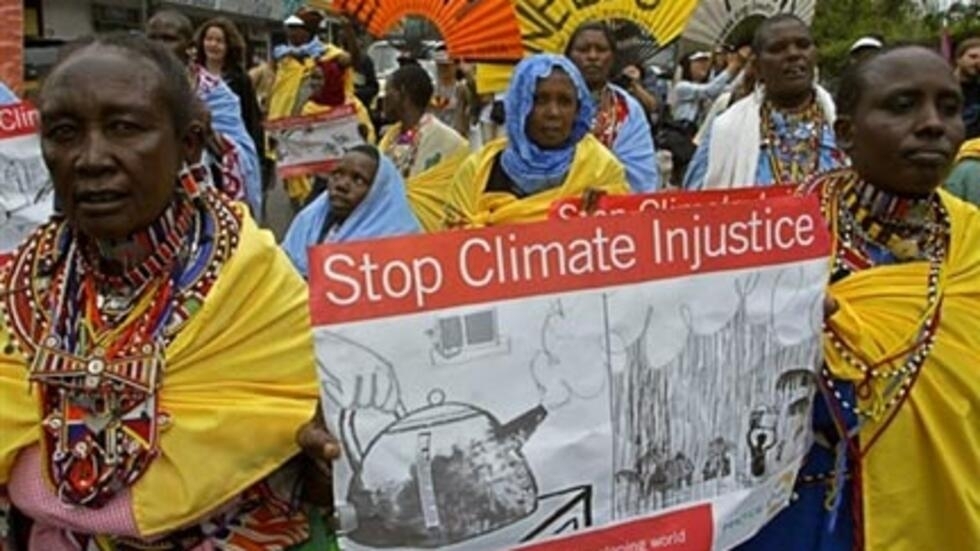At Africa Summit, advocates push for climate justice, economic equity

![]()

Climate advocates have welcomed proposals by African leaders for a global carbon tax in a bid to tackle the impact of climate change in Africa.
Advocates also urged multinational corporations — those emitting carbon, such as oil companies and manufacturers — to avoid passing the tax burden to countries with fewer infrastructures.
Twenty heads of state and country representatives attended the first Africa Climate Summit, which was held in Nairobi, Kenya, from Monday through Wednesday. The leaders demanded that major polluters pay low- and middle-income countries for the damage their emissions cause.
The declaration on climate also noted a 14-year-old, unfulfilled $100 billion annual financing pledge by developed countries to help developing nations reduce emissions and manage the impacts of climate change.
The leaders are expected to take the carbon-tax proposal to the United Nations Climate Change Conference in Dubai later this year.
Fati N’Zi Hassane, Africa director for Oxfam International, a U.K. charity focusing on eradicating global poverty, said that a global tax for carbon-emitting countries is worth exploring, but that measures are needed to ensure corporations do not increase their prices to make up for the taxes.
“This is the first time such a solution has been brought into such spaces, and such solutions have to be thought through very carefully — the discussion needs to be more inclusive,” she told VOA. “We feel that calling for such a solution is to make sure that polluters start paying, because this is what we have been calling for.”
N’Zi Hassane stressed the importance of considering populations severely impacted by the climate crisis, particularly women and children. The United Nations Environment Program estimates that 80% of people displaced by climate change worldwide are women.
“We need to be careful here because such measures [a global carbon tax] could affect the price of products and services, and at the end of the day, the people will pay the price,” she said.
N’Zi Hassane said Africa, which represents 17% of the global population and produces 4% of the global carbon emission, bears the unfair burden of the impact of climate change.
She said notable successes of the summit included consensus among the leaders for the proposed global carbon tax and discussions around calls for debt restructuring and relief for African countries, along with the development of a new global climate finance charter by 2025.
East Africa is one of the world’s regions hardest hit by climate change with extreme weather conditions leading to extreme hunger, even as the region contributes virtually nothing to global carbon emissions.
Oxfam’s latest report, “Unfair Share: Unequal Climate Finance to East Africa’s Hunger Crisis,” found that Ethiopia, Kenya, Somalia and South Sudan lost approximately $7.4 billion worth of livestock between 2021 and 2023 due to extended drought caused by climate change.
“The climate injustice we’re seeing before our very eyes in the Horn of Africa, for example, has left 31.5 million people on the brink of famine,” N’Zi Hassane said. “This region has been promised billions of dollars, but only a small portion — $2.4 billion of the $53.5 billion — that [was] supposed to flow into the region to fight the effect of climate change [has] been reached.”
Saliem Fakir, executive director at the African Climate Foundation, an African-led initiative focusing on climate change and development, said that the economic agenda linked to development and the climate crisis is a “very important pivot” that would “remain the basis for future summits.”
Fakir said diplomacy and the ability of African leaders and stakeholders to influence solutions is vital. He added that the continent’s top priority for providing immediate relief to those bearing the brunt of the climate crisis is to focus on a “fundamental and basic issue that has to be addressed, which is really around economic development.”
Source: VOA English to Africa Service.


